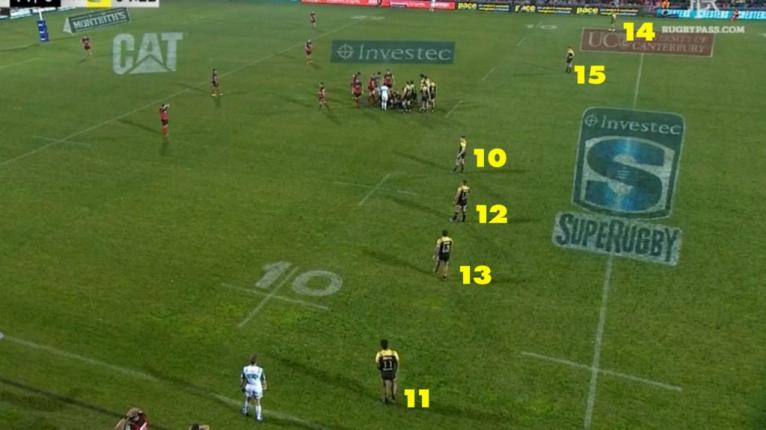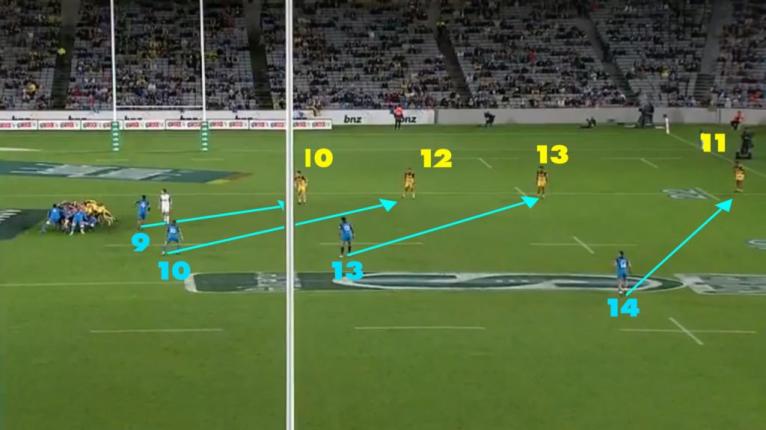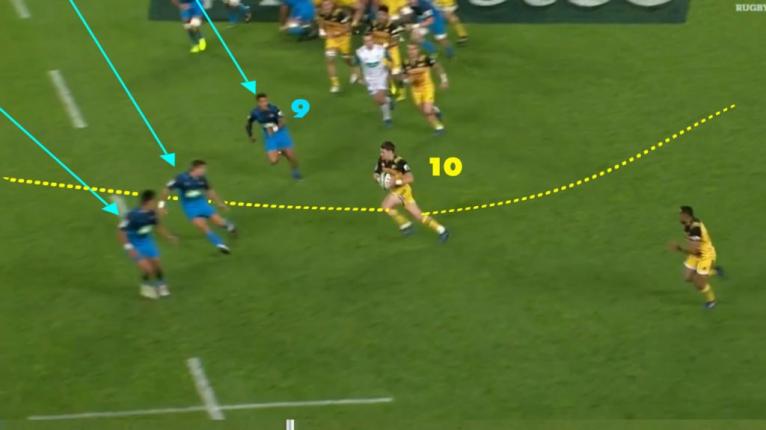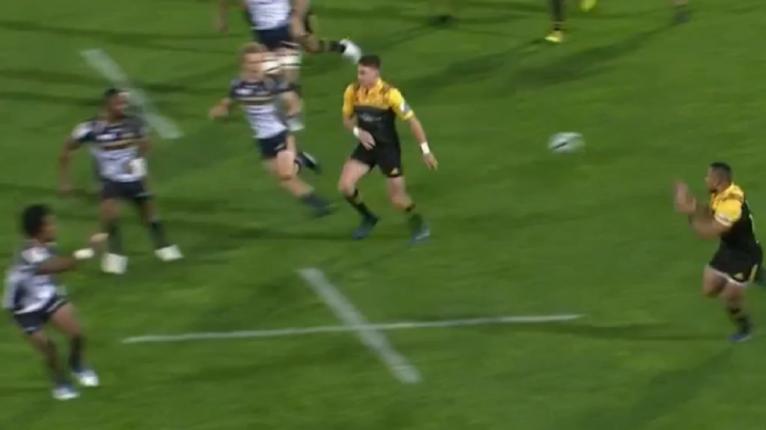Analysis: How Beauden Barrett burns opposition halfbacks

Beauden Barrett is unquestionably the most dangerous 10 in world rugby.
The arsenal of skills he possesses is comprehensive and unrivaled; the cross-field kick-pass, the short chip, flick passes, flat balls, offloads and perhaps the most dangerous weapon of them all – pure speed.
While his personal favourite play might well be the kick-pass, this set piece play would go close. The play is designed for Barrett to hit top speed and break the line, isolating slower halfbacks and exposing slide defence.
It was used by both the Hurricanes frequently in 2017 and at times by the All Blacks.
BB Run Option
This ‘BB run option’ play gives Barrett a ‘sliding door’ to run through. The play is always run off a centre field scrum allowing his backs to operate a 4-2 split.
Jordie Barrett (15) and his winger are stationed as a blind side option on one half, while Beauden Barrett keeps his mid-field (12 & 13) on the other half of the field.

The 4-2 split forces the opposition to defend the blind with two backs, giving Beauden Barrett a four-on-three overlap on the other side as the defending fullback is always out of the front line.
Barrett simply gets the ball off the base directly from 9 and drifts slightly as he accelerates at the line. He then makes his read – deciding whether to hold or pass – based on what the defense does.
Why the play works
The initial set up forces the opposition to employ a sliding defence on the open side. To cover the four-on-3 overlap, each defender slides to take the outside man and the halfback must join to take Beauden Barrett as illustrated below.

The Blues defensive set up on this scrum was poor, further complicating their chances of shutting down the play.
Pier Francis (10) is almost directly behind his halfback instead of marking Barrett, seemingly hedging bets to cover both sides of the scrum.
With the defence sliding to cover all runners, Francis must run past Barrett to reach Laumape. This puts enormous pressure on the inside defender, halfback Augustine Pulu to cover Barrett. To make things difficult, Barrett will still veer away from Pulu.

As Barrett approaches top speed, he will make his read. If Francis breaks protocol and engages him, he simply passes and the Hurricanes are still presented with a three-on-two situation. If he keeps sliding, Barrett is one-on-one with a covering halfback.
This isolation is exactly what he wants. In last year’s Super Rugby campaign, he broke the line one in every eight runs, the more situations Barrett can go one-on-one the more likely he is make something happen.
Don’t give Beauden the look
Teams can avoid giving the Hurricanes the four-on-three overlap on the open side to stop Barrett getting this opportunity.
They could defend with a 4-1 split (instead of 3-2) and keep the halfback on the blind side to help the isolated winger. The Hurricanes will be tempted to use the numbers advantage there, keeping the ball away from Barrett.
The defence can still match the blind side play with the halfback already stationed there and the covering fullback coming up and taking the last man.
Continually forcing Barrett to pass is another viable option. The dynamic duo of Vince Aso and Ngani Laumape are renown for their power running and try scoring feats but far less for exploiting overlaps.
Laumape is a run dominant player (63% of the time) and while Aso is more balanced around 50 percent, has a low line break assist rate (just 4.63%).

On this occasion against the Brumbies, Kuridrani provides Joe Powell support, forcing Barrett to pass.
What to look for in 2018
Teams should be well aware of this staple move used by the Hurricanes and should be able to scheme better to limit this part of Barrett’s running game.
When given the mid-field scrum it will be interesting to see how the Hurricanes innovate their attack but if you continue to give Barrett the running lane, he will keep burning halfbacks with this play.
https://www.facebook.com/InstantSpeed.ie/videos/1444396222350299/
























